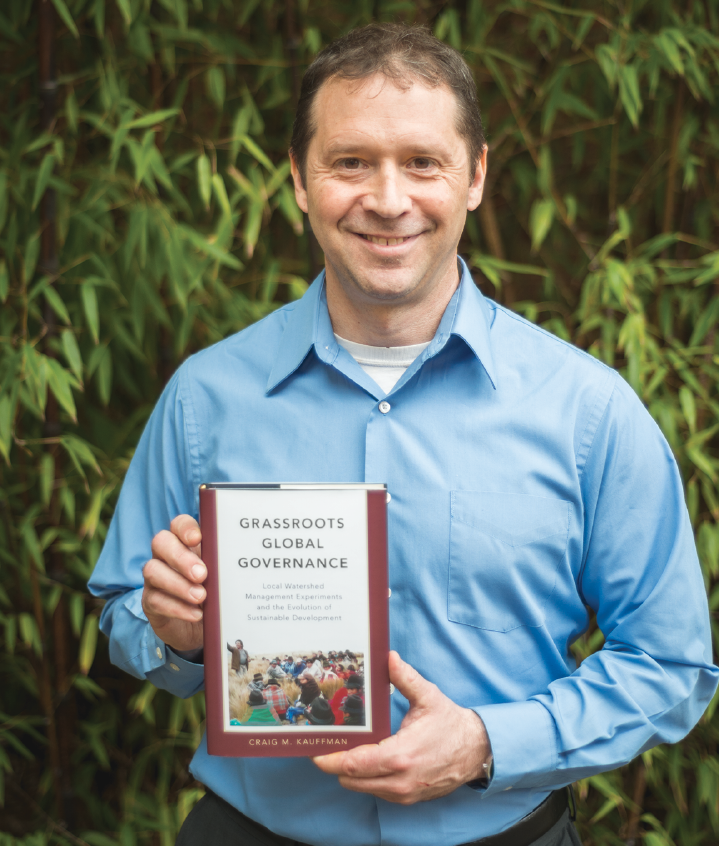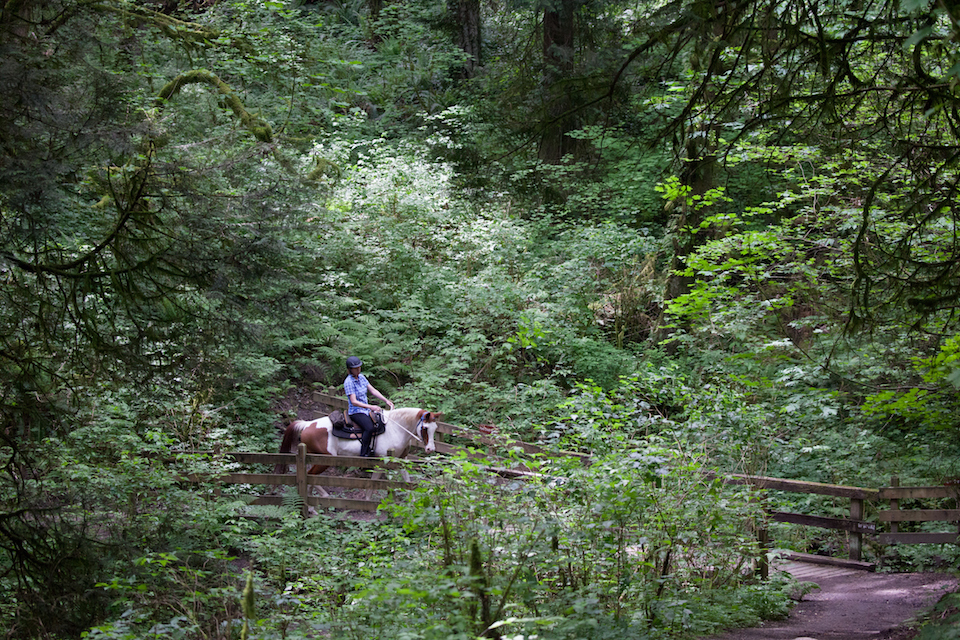Combating Climate Change with Law
interview by Sheila G. Miller | photos by Kjersten Hellis
Craig Kauffman is an assistant professor of political science at the University of Oregon. He is also a faculty member for the environmental studies and Latin American studies departments. He’s currently in the process of co-writing a book that documents the rise of Earth jurisprudence, the idea that nature should have rights that cannot be infringed upon by the state, just like humans and corporations.
Kauffman is also a member of the United Nations Knowledge Network on Harmony with Nature, and a participating member in the UN General Assembly’s interactive dialogue on harmony with nature. He’s co-authoring a book on instances in which rights of nature have been implemented throughout the world.
How have these ideas of rights of nature and earth-centered law developed?
For a long time, it was considered quite radical but it has become more mainstream in the last decade. A growing number of countries have adopted rights of nature laws, so it’s no longer an abstract philosophical argument. Now it is being expressed in law and, as you can imagine, that’s where the rubber hits the road. There’s a lot of conflict—ideas have to be tested.
The idea that unifies all of these terms is that human laws need to be consistent with the laws of nature, and the implication is that currently they are not and that is causing problems.
How do people currently seek to solve the issue of climate change?
Outside of our domestic political context in the world, there is no longer a debate over the science. One of the solutions often brought up is geoengineering—create new technologies to allow us to deal with climate change without changing values and lifestyles and behaviors. But the bottom line is that even with technology, ultimately we’ll have to change our values and behaviors. And experience tells us that laws are a useful tool for stimulating normative change over time.
So how do rights of nature actually work?
Human rights is a good example. Slavery is not tolerated morally, it’s illegal, and we now have global human rights. Or think about the changes in norms regarding smoking over the past thirty years or the use of seatbelts. The argument is that ultimately we will need human laws concordant with nature, human laws that regulate how economies function and how people use natural resources.
In dominant Western notions, humans are seen as apart from nature, the lords or lawmakers of nature. That notion combined with the notion of development as a linear progression of economic growth – those two things have combined in our western worldview and framed nature as a resource to be extracted, to use for fuel or for consumption.
Have these been put in place, and what is the result?
Nearly three dozen municipalities in the United States, the largest being Pittsburgh, have rights of nature ordinances. Most were established to try to prevent outside corporations from being able to come in and pollute the local environment and leave local communities with health and financial costs.
Ecuador wrote it into their constitution.
Can you give an example of one of these laws in action?
Shrimp is a massive industry (in Ecuador) and the shrimping industry is incredibly powerful economically. The industry has grown in these areas where there are these very fragile mangrove ecosystems and they began to be destroyed as companies set up shrimp farms on them. Long story short, rights of nature law were used to expel these shrimping companies. The companies argued that their right to work, their right to have jobs and earn income from this endeavor, and their private property rights outweighed the rights of nature. Previously that was an argument judges were sympathetic to. But here, the judge ruled that no, in the constitution rights of nature are transversal, they affect every other law in the constitution and that therefore they trump private property rights and the right to work. That set legal precedence that rights of nature take precedence over economic property rights.
Do you have any hope for us solving climate change?
I want to be an optimist. I honestly believe that earth-centered law and the courts are our last and only hope. I don’t believe there is going to be a political solution voluntarily. I don’t believe geoengineering is going to solve the problem. The window of opportunity for taking meaningful action is closing rapidly. I think technological solutions could buy us some time for normative changes to occur, but for that to happen we need to be moving quickly to adopt these laws.
I fight the good fight because that’s what we believe, but it’s an uphill battle.










